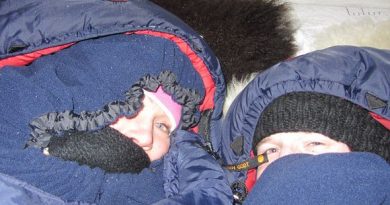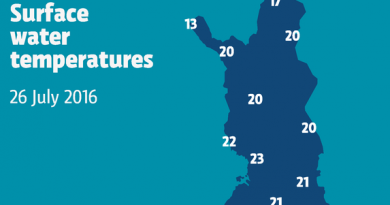Finnish conservationists worry about Saimaa ringed seal as fishing net ban ends

Conservationists want fishermen in lake Saimaa to voluntarily extend a seasonal ban on fishing nets intended to help protect endangered Saimaa ringed seal pups.
The Finnish Association for Nature Conservation has called on fishermen to refrain from dropping nets even after the ban is lifted and no penalties can be imposed for the practice.
The NGO noted that last year five seal pups died in nets in July, shortly after the annual ban ended.
It pointed out that the use of loosely-woven fish traps is prohibited year-round. The entrance to the traps should not be larger than 15 centimetres, it added.
According to the organisation, fishing nets are also responsible for adult seal deaths during summer and winter.
The NGO said in a statement on Monday that after a poor winter nesting season, there are probably fewer Saimaa seals in the region than last year. Additionally, many of the pups born last winter are believed to be in a more fragile condition than usual.
Sick seals to be reported
Meanwhile the state forestry and parks agency Metsähallitus said that nature lovers should avoid approaching seals and advised that they be observed from a distance of at least 100 metres, preferably using binoculars.
According to the agency, animals that appear to be listless or injured should only be approached cautiously after at least 15 minutes of observation. If a seal does not react to people who get within five to 10 metres of it, something is clearly wrong, it advised.
Metsähallitus warned people not to touch the seals with their hands or any other objects. If upon inspection a seal appears to be sick or injured, the agency should be notified by phone and photographs of the affected animal should be taken if possible.
The forestry agency said that it is important to be even more careful around seal pups resting on the ice. It is quite common for mother seals to leave her cubs on the ice or a rock for several hours, however people should not approach them.
Still an endangered species despite comeback
The rare Saimaa ringed seal is under threat from fishing activity, climate change, shoreline construction and other man-made disruptions to nesting sites. In addition, its small size and dispersion across the Saimaa region also threaten the species, Metsähallitus said.
The agency said that the seal population had been declining until the early 1980s. However since then it has gradually recovered as a result of conservation efforts and pups’ survival rates have improved.
The ringed seals that live in the Saimaa region have been classified as extremely endangered and the population has recently been estimated at around 400, according to WWF Finland.
The Saimaa seal was isolated around 8,000 years ago when the connection between Saimaa and the Baltic sea was eliminated by rising land masses.
Related stories from around the North:
Arctic: Arctic sea ice loss linked to spread of deadly virus in marine mammals, Eye on the Arctic
Canada: Yukon advocates want moratorium on grizzly bear hunting in Canada, CBC News
Finland: Finland’s endangered Saimaa ringed seal population reaches 400, Yle News
Greenland: Oldest Arctic sea ice vanishes twice as fast as rest of region, study shows, Eye on the Arctic
Norway: In Arctic Norway, seabirds build nests out of plastic waste, The Independent Barents Observer
Russia: Mass vaccination is underway on Russia’s Yamal tundra, The Independent Barents Observer
Sweden: Warnings in Sweden about dangerous bacteria in Baltic Sea, Radio Sweden
United States: Mass grey whale strandings may be linked to solar storms, CBC News



